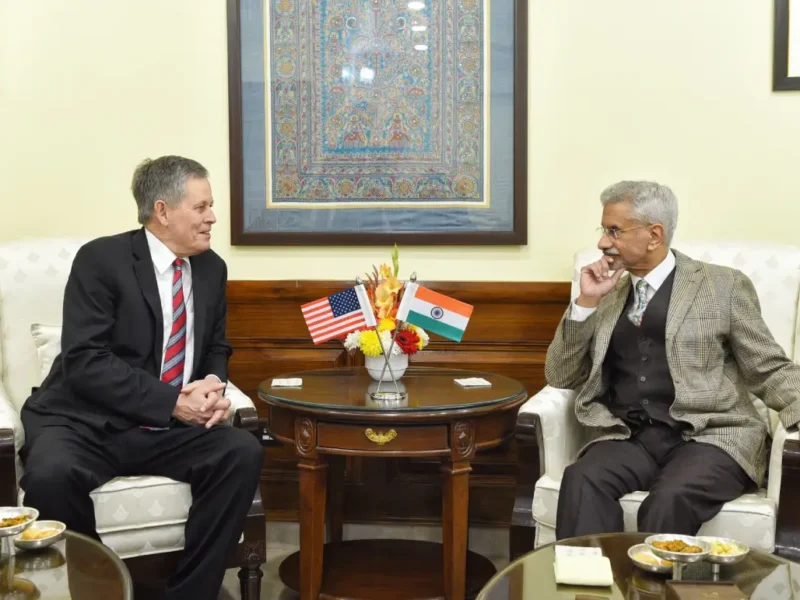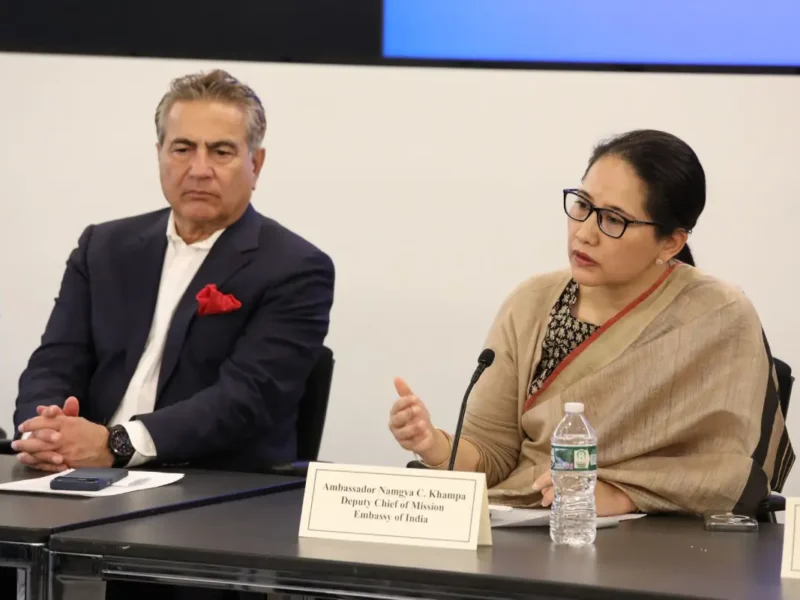India Links Among Candidates May Spell Little Fizz For Indo-US Ties
Photo: REUTERS/P. Ravikumar
NEW DELHI/ CHENNAI, (REUTERS) – The Indian links of some US presidential election contenders probably mean little additional benefit for ties, experts said, against the backdrop of bipartisan support for closer relations with the South Asian nation to counter an assertive China.
Democratic Vice President Kamala Harris and Usha Chilukuri Vance, the wife of Republican Donald Trump’s running-mate, have rarely visited the birthplace of one or both of their parents. However, Indians take pride in their success.
“Either way, from India’s perspective, whether it is Republican or Democrat, that relationship enjoys bipartisan support and should not be affected,” said Harsh Vardhan Shringla, a former Indian ambassador to the US. “It can only benefit,” he said of the India links, adding, “(It) cannot be affected adversely.”
Since ties with New Delhi are viewed favorably by both parties in Washington, there will be little impact on relations, regardless of which party wins, or the candidate’s Indian roots, an Indian government official said on condition of anonymity.
Both President Joe Biden and Trump, his predecessor in office, sought to woo India, not just to challenge China in the region, but also to wean New Delhi from a traditional dependence on Russian weapons.
Both Harris and Usha Vance, the wife of Republican vice-presidential candidate, J.D. Vance have links to Southern India. Vance belongs to a family of renowned academics.
Harris, who has garnered the backing of enough delegates to secure the Democratic nomination, is viewed as a role model in her mother’s ancestral village of Thulasendrapuram.
She has “proven how young women, previously confined to their homes, can reach such heights, becoming a public figure in the world’s No. 1 country,” said J Sudhakar, a resident of the village where Harris’ maternal grandfather was born.
“How big an achievement is that?”
Harris, who visited the village as a five-year-old, has recalled walks with her grandfather on the beach of the city of Chennai where the family later lived, about 320 km (200 miles) from the village of roughly 2,000 people.
But she has not been back since becoming U.S. vice president.
“Residents expected a visit, a statement or at least a mention of the village, but that didn’t happen,” said shopkeeper G. Manikandan.
“But we will invite her when she wins and organize a grand celebration and welcome for her,” he added.





Daljit (Dean)Singh
/
Kamala Harris recognizes her Indian heritage but is not sentimentally attached to it. Even though her Jamaican father disowned her and her sister after divorcing her mother, Kamala always felt like part of the Black American community than Indians. Growing up in Oakland, Kamala was welcomed by Black American neighbors and friends instead of the South Asians in the town. Because of this affinity and enforcement of cultural ties, she preferred to go to Howard University in Washington, DC instead of a university in California. At Howard her immersion with the Black student fellowship was complete. Strategically, India or South Asia do not play any significant role in her political goals. If elected to the White House, she will take an active role and be assertive in dealing with India’s shifting foreign policies.
July 29, 2024Pradeep Srivastava
/
It’s untrue that Harris has “rarely visited the birthplace of one or both of their parents” See below.
“Harris, whose first name is Sanskrit for “lotus,” has always identified as both Indian and Black and has long embraced both cultures. She visited India regularly growing up, went to a historically Black university, was President of the Black Law Students Association and was a member of both the Congressional Asian Pacific American Caucus and Congressional Black Caucus.”
“ Harris, who visited the village as a five-year-old, has recalled walks with her grandfather on the beach of the city of Chennai where the family later lived, about 320 km (200 miles) from the village of roughly 2,000 people.”
I strongly agree with the following excerpt from the India West article.
“Either way, from India’s perspective, whether it is Republican or Democrat, that relationship enjoys bipartisan support and should not be affected,” said Harsh Vardhan Shringla, a former Indian ambassador to the US. “It can only benefit,” he said of the India links, adding, “(It) cannot be affected adversely.”
Too many India centric Indian Americans support and plan to vote for Trump in 2024 because they think only Trump and his Party can be good for India, Trump being a good buddy of PM Modi. Nothing could be farther from the truth. India and USA have a natural affinity because India is the largest democracy and USA is the oldest democracy. They may have occasionally differences on specific issues but that should have no impact on the strength of their relationship.
August 5, 2024